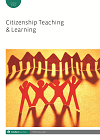
Full text loading...
 , Jia Ying Neoh2
, Jia Ying Neoh2
Global citizenship education (GCE) plays an important role in preparing citizens with the competencies to tackle existing and emerging challenges brought on by globalization. Yet, determining the desired purposes of GCE is contested as it is shaped by different perspectives on globalization, and conceptualized through different discourses in different contexts. This article uses Biesta’s three purposes of education – qualification, socialization and subjectification as a theoretical framework to examine the purposes that the K-6 geography curriculum in the Australian Curriculum serves in relation to developing global citizenship competencies through an analysis of the curriculum policy. Our analysis shows that without a clear purpose for global citizenship in the curriculum policy, global understanding is consistently related to Australia as a nation state when represented at all, limiting learning opportunities to develop global thinking that supports a critical democratic discourse of global citizenship through the subjectification purpose of GCE. Instead, the K-6 geography curriculum is largely invested in socialization towards neo-liberal ends and a passing qualification function that prepares students to be ‘knowledgeable’ as they enter the world.

Article metrics loading...

Full text loading...
References


Publication Date:
https://doi.org/10.1386/ctl_00128_1 Published content will be available immediately after check-out or when it is released in case of a pre-order. Please make sure to be logged in to see all available purchase options.